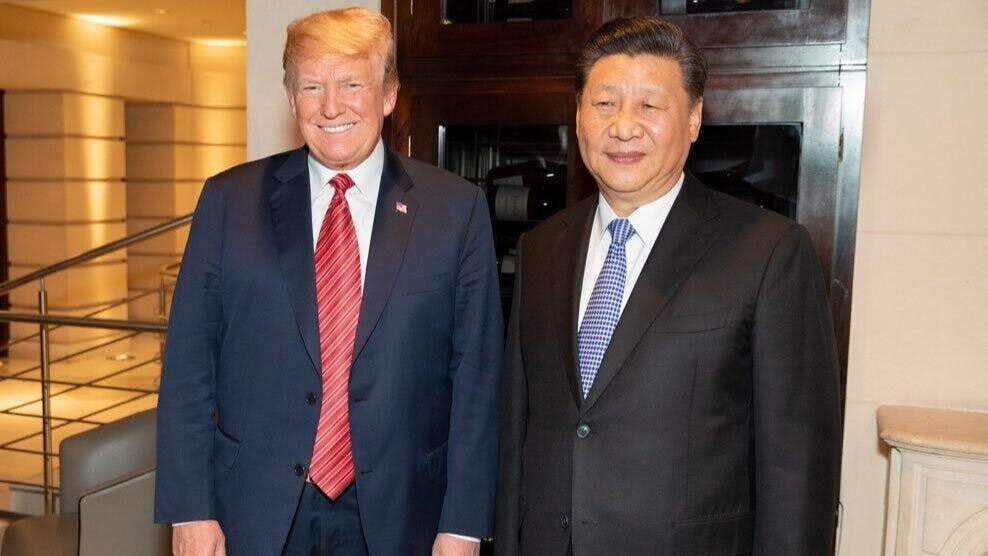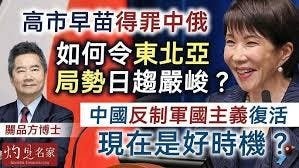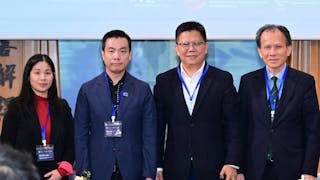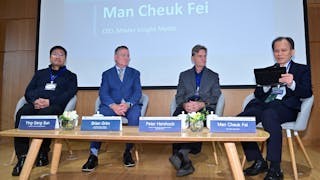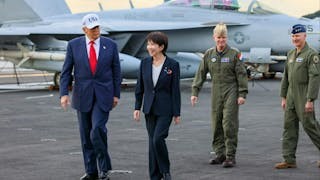美國總統特朗普在其就職演說中,不僅強調美國主權和國家安全是其首要關切的重點,而且突顯他要奪回巴拿馬運河「控制權」的決心,未來美國主義很可能與中國反美的意識形態發生正面衝突。
特朗普的美國主義是其外交政策的核心內容,其中包括TikTok對美國人構成所謂的「國安威脅」、對中國商品徵收關稅來解決兩國的貿易失衡、美國要奪回巴拿馬運河的控制權、通過經濟制裁施壓俄羅斯進行停火談判,以及宣稱中國國家主席習近平是其好友、卻不斷強調中國在經濟和軍事方面對美國構成國安威脅,這盡顯特朗普自相矛盾的性格。
在特朗普就職前,特習兩人曾通電互釋善意,習主席在談話中重申,中美應尊重彼此的核心利益,尋求妥善解決雙方分歧的方案,並強調台灣問題關乎中國主權和領土完整,冀兩國關係能互利共贏,不希望對抗和衝突。
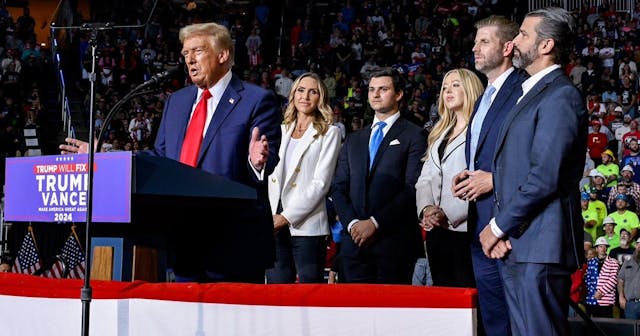
言辭冠冕堂皇 團隊充斥對華鷹派
特朗普向媒體透露,他和習主席討論了貿易、芬太尼、TikTok和俄烏戰爭、以巴衝突等不同議題。他並說會和習主席「盡一切可能讓世界更加和平和安全」。
雖然特朗普言辭冠冕堂皇,但其團隊卻充斥着對華鷹派的政客,包括國務卿魯比奧和國防部長赫格斯。魯比奧在擔任國務卿之前已不斷批評中國,赫格斯更警告,中國將對美國構成嚴重的軍事威脅,甚至實現「全球統治」。
1月24日,中國外交部長王毅與美國新任國務卿魯比奧通話,希望為美中關係發展發揮建設性作用。然而,魯比奧回應,特朗普政府將追求一種「促進美國利益、並將美國人民放在首位」的中美關係。同時魯比奧也表達了美國對亞太地區盟友的承諾,以及對中國「對台灣和南海採取軍事威懾行動」的嚴重關切。他強調美國雖然不支持「台獨」,但希望台灣問題能夠和平解決。
王毅則表示中美雙方要落實共識、保持溝通、管控分歧、擴大合作,這與習近平主席在電話中對特朗普的講話相呼應。
從特朗普與習近平、王毅與魯比奧的中美互動來看,特朗普政府採取的「美國優先」政策注定將遭到中國的抵制和反對,因此中美關係發展很可能充滿坎坷和不確定性。
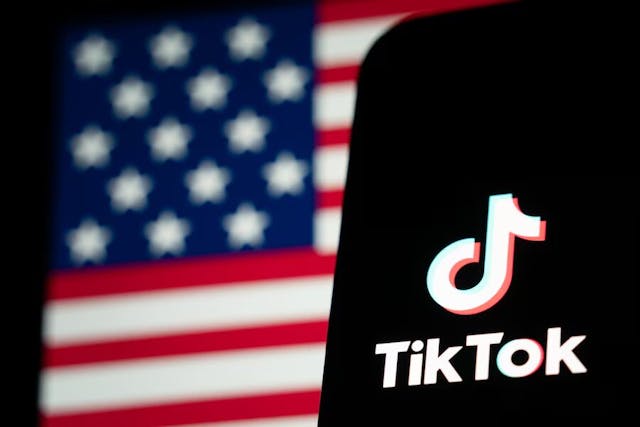
錯以為TikTok官方背景可作籌碼
美國人大多持有一種誤解,甚至可以說是偏見,就是TikTok獲得中國官方幕後的支持,但中國領導層傾向與企業營運保持距離。如果特朗普團隊因此將美國TikTok的去留作為對抗中國的籌碼,那麼他們可能已經誤解了中國官方的觀點。
此外,特朗普聲稱巴拿馬運河被中國控制的說法也即時遭到外界批評,這表明香港公司經營巴拿馬運河並不一定意味着中國政府控制了運河。特朗普的反華言論和偏見將會為中國領導層帶來更深層的誤解和不信任。
再者,特朗普以關稅作為與中國談判的籌碼是有其限制。首先,如果美國對中國商品廣泛徵收關稅,將迫使美國消費者以更高價格購買商品。其次,利用關稅迫使中方購買更多美國商品,也意味着關稅不能輕易被用作其他非經濟議題上的談判籌碼。
與已故總統卡特的人權外交政策贏得世界許多國家的尊重不同,在許多人眼中,特朗普政府的美國主義愈來愈具有美國霸權、傲慢和輕視的色彩,是沒有國際主義內涵的美國狹隘主義,完全沒有維護人權的強烈道德言辭和原則。
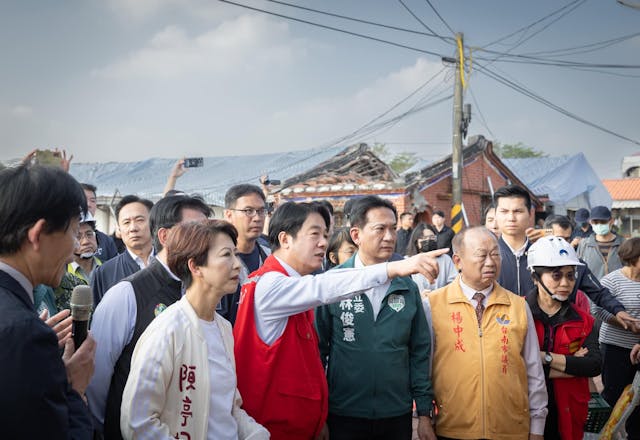
美國領導地位陷入合法性危機
然而,反美主義意識形態在中俄兩國的外交政策中都十分突出。在金磚集團等新興國家崛起的新時代,美國軟實力急劇下降,其道德合法性和全球領導力受到嚴重挑戰和質疑,特別是以巴衝突使美國成為世界許多人眼中不受歡迎的國家。如今美國主義不僅遭到國際社會的強烈反對,也令美國的領導地位陷入合法性危機。
值得關注的是台灣問題仍然是美中關係的棘手問題,中方警告美方不要採取任何輕率行為。言下之意,中國認為美國的對台政策正從一中政策或明或暗地逐步轉向為支持「台獨」政策,因此中方可能會就美方持續向台灣軍售一事討價還價。
雖然美方呼籲中方和平解決台灣問題,但關鍵在於美對台政策似乎略有改變, 它變相承認台灣政權的合法性,例如美方安排和默許政客、現任和退休官員訪問台灣,甚至與台灣領導人會面。最重要的是,美方對中方處理台灣問題缺乏建設性解決方案,只是老調重彈呼籲雙方和平解決。
OPINION – Trump’s Americanism and its Implications for US-China Relations
The inaugural speech of US President Donald Trump not only emphasized America’s sovereignty and national security interest as his administration’s foremost concern, but also highlighted the US determination to get back the so-called Chinese “control” of the Panama Canal – signs pointing to the ideology of Americanism that will very likely clash with the China’s ideology of anti-Americanism in the coming months and years.
Trump’s Americanism can be seen as a hallmark of his foreign policy stance, which includes a perception of the so-called “national security threat” of Tik Tok to the Americans, the need for the utilization of tariffs for Chinese goods to address the trade imbalance between the US and China, the criticisms of Panama in dealing with the Panama Canal, the assertion that increasing economic sanctions would exert pressure on Russia in the impasse with the Ukrainian war, and a contradictory duality of praising Chinese President Xi Jinping as Trump’s good friend on the one hand but regarding the People’s Republic of China (PRC) as a national security threat in economic and military terms to the US.
On the evening of January 17, Chinese President Xi Jinping took a phone call from President-elect Donald Trump. Xi first congratulated Trump on his re-election as the US President and he noted that they both attached immense importance to Sino-US interactions, hoping for a good beginning of Sino-US relations. President Xi added that he would like to secure greater progress in Sino-US relations from a new starting point, for both countries are committed to delivering better life to their peoples. Given the common interests and historical cooperation of both countries, Xi hoped that the two sides will continue to contribute to each other’s success and prosperity.
Interestingly, President Xi emphasized that China and US should respect each other’s core interests and concerns and look for proper solutions. He added that the Taiwan question is concerned about China’s sovereignty and territorial integrity. As such, the US side should, according to Xi, approach it with prudence. While bilateral relations are mutually beneficial, President Xi hoped that confrontation and conflict will not be an alternative for both countries, which should follow the tenets of mutual respect, peaceful coexistence and win-win cooperation.
Trump revealed to the media that he and President Xi discussed trade, fentanyl, Tik Tok, and many other issues, such as the Ukraine crisis, the Palestinian-Israeli conflict. Trump also stressed that he and Xi would do “everything possible to make the world more peaceful and safer.”
Relations between US and China are destined to be tense and fluctuating during the new Trump administration
When Trump was a candidate running again for the presidential election, he claimed to impose 60 percent tariffs on all goods from China, but later he toned down by saying that, once he was elected as the president, an additional tariff of 10 percent would be levied on the Chinese goods until China stops the follow of illegal drugs to the US.
Trump’s lieutenants are the hawkish politicians on China, including Secretary of State Marco Rubio and the Secretary of Defense Pete Hegseth. While Rubio was constantly a critic of China before he became the Secretary of State, Pete Hegseth warned that China would militarily pose a serious threat o the US and that China would achieve “global domination.”
A mitigating factor that would ease the tense US-China relations is the role of Elon Musk, the founder of electric vehicle giant Tesla which produces at least half of its cars in mainland China. Musk was invited to meet Chinese officials and has been regarded as a friend of China. The weight of Mush vis-à-vis other China hawks like Rubio and Hegseth will remain to be observed.
As a former businessperson, Trump’s approach to dealing with foreign relations adopts a narrowly American first ideology that is combined with economic pragmatism. During the presidential election campaign, Trump said that self-governing democracies, like Taiwan and South Korea, should pay the US more for military protection and that Taiwan “stole” the American semi-conductor business. His comments raised the eyebrows of some politicians in Taiwan and South Korea.
On January 22, two days after Trump’s inauguration, President Xi and his Russian counterpart Vladimir Putin had a video call during which Putin referred to Xi as a “dear friend.” Both sides vowed to build their relations based on friendship, mutual trust and support. President Xi called on Putin to deepen strategic coordination, consolidate mutual support and safeguard the two countries’ legitimate interests. President Xi told Putin that the year 2025 marks the 80thanniversary of the victory of the Chinese people’s war of resistance against the Japanese invasion, the Soviet Union’s Great Patriotic War, and the world’s anti-fascist war. He added that both countries should uphold and pursue multilateralism, working together to advance BRICS cooperation and to strengthen the Global South.
(250121) — WASHINGTON, Jan. 21, 2025 (Xinhua) — U.S. President Donald Trump signs an executive order at Capital One arena in Washington, D.C., the United States, Jan. 20, 2025. (Xinhua/Li Rui)
Interestingly, Putin diplomatically noted that Russia and China often trust each other, and that Russia firmly supports Taiwan as an inalienable part of China’s territory and that it opposes “Taiwan independence” in any form.
Clearly, while President Xi appeared to tell Putin that China cherishes Russia as a strategic partner after he and Trump had a phone call, Putin stressed that Russia supports the one-China policy and the Russian President seemed to indirectly criticize the US for adopting a problematic policy on Taiwan.
On January 24, the Chinese Foreign Minister Wang Yi spoke with the new US Secretary of State Marco Rubio. Wang hoped that Rubio would play a constructive role in the development of US-China relations. Yet, Rubio told Wang that the Trump administration would pursue a relationship with China that “advances US interests and puts the American people first.” Moreover, Rubio expressed the US commitment to its allies in the Asia-Pacific region and serious concerns over Chinas “coercive actions against Taiwan and the South Chin Sea.” During the Senate confirmation of his appointment, Rubio referred to China as the “gravest threat” encountering the US. His remarks to Wang Yi could also be seen as a reiteration of the US policy stance toward China.
Wang Yi said that both China and US should implement their common understandings, maintain communication, manage differences, and expand cooperation – a theme echoing what President Xi told Trump over the phone. Wang also reiterated Xi’s stance on Taiwan, namely the US side should manage the Taiwan issue prudently as Taiwan has been part of China’s territory since the ancient times. Wang added that China would never allow Taiwan to be split from China. Moreover, the US has made commitments on the one-China policy and therefore it should not renege on this policy position.
In response, Rubio said that the US does not support “Taiwan independence” and he hopes the Taiwan question can be resolved peacefully in a manner acceptable to both sides of the Taiwan Strait.
Judging from the interactions between Trump and Xi, Xi and Putin, and Wang and Rubio, the American First policy adopted by the new Trump administration is destined to encounter Chinese resistance and opposition. The development of US-China relations is likely to be rocky, fluctuating and filled with uncertainties.
First, while Trump sees his policy toward Tik Tok as a potential bargaining chip vis-à-vis China, the Chinese leadership is relatively silent and tends to see it as a private-sector business with which the Chinese government distances its relations. As such, it is more an American perception and perhaps bias of the Chinese authorities’ behind-the-scenes support of Tik Tok. If Trump and his lieutenants perceive Washington’s possession of its leverage over Tik Tok as a bargaining chip vis-à-vis China, they may have already misunderstood the official Chinese perspective.
Second, Trump’s claim that the Panama Canal has already been controlled by China has encountered immediate media criticisms, which point to the fact that a Hong Kong company’s operation of the Canal does not necessarily mean the Chinese government’s control. Trump’s anti-China rhetoric, perception and bias can and will bring about deeper misunderstanding and distrusts with the Chinese leadership.
Judging from the interactions between Trump and Xi, Xi and Putin, and Wang and Rubio, the American First policy adopted by the new Trump administration is destined to encounter Chinese resistance and opposition. The development of US-China relations is likely to be rocky, fluctuating and filled with uncertainties.
Third, although Trump claims that he and President Xi are good friends, the fact that Xi had a phone call with Putin soon after the Chinese president’s discussion with the US president-elect meant that China was and is keen to avoid a position that is seen to be too close to the US. China is keen to project an image of balancing the interests of Russia and those of the US. As such, if Trump wishes to secure the Chinese support of “withdrawing” the so-called logistical supplies to the Russian military equipment in the Ukraine war, such policy is destined to backfire. In the first place, China has denied the provision of logistical supplies to the Russian military in the Ukraine war. Most importantly, the export of civilian goods that can be used in military weapons belongs to a grey area in which it is quite difficult to verify, let alone a call for China to apply economic sanctions on Russia. After all, economic sanctions have limited functions and impacts in the international politics of US vis-à-vis Russia.
Fourth, Trump’s usage of tariffs as bargaining chip has its limitations in dealing with China. Although tariffs appeared to be an effective weapon to force China to accept more imports from America, the PRC can delay such imports. Most importantly, if tariffs are used extensively on the Chinese goods, it will be the American consumers themselves who actually suffer from the need to pay for goods in a much higher price. The usage of tariffs to force the Chinese side to buy more American goods also mean that tariffs cannot be easily used as a bargaining chip on other non-economic matters.
Fifth, Trump’s Americanism is turning the US into self-protectionism and isolationism without globalism, and with a continuously declining American soft power. The self-protectionism of the US is apparent in Trump’s desire to withdraw from the Paris Agreement and the World Health Organization. Unlike the US whose soft power was at its apex shortly after World War Two as it led the allies in defeating the axis of evil and in maintaining world peace, the Trump administration’s Americanism has been increasingly seen as US hegemony, American arrogance and American neglect of many other countries’ different cultures and values. Unlike the late Jimmy Carter whose human rights foreign policy gained the respect of many countries in the world, Trump’s Americanism represents US parochialism without internationalism and without a strong moral rhetoric and principle of upholding human rights.
Yet, the ideology of anti-Americanism is prominent in the foreign policies of both China and Russia. In a new era of emerging new powers, like core countries of the BRICS, the US soft power has been declining so rapidly that its moral legitimacy and global leadership have been seriously challenged and questioned. In particular, the Palestinian-Israeli conflicts have dragged the US into an unprecedented degree of unpopularity in the eyes of many peoples in the world. As such, Americanism is now encountering not only severe opposition in the world, but also a legitimacy crisis of the US global leadership.
Sixth, Taiwan remains a thorny problem in US-China relations. Both Xi and Wang warned the US side of any imprudent behaviour. By implications, China has seen the US policy toward Taiwan as gradually or silently drifting away from one-China policy to a policy that implicitly or explicitly supports “Taiwan independence.” As such, the Chinese side will likely bargain with the US over Washington’s continuous supply of weapons to Taipei. While the US side appeals to the Chinese side for a peaceful resolution over Taiwan’s future, the crux of the problem is that Washington has seemingly and slightly changed its policy toward Taiwan by de facto recognizing its regime, like arranging and tolerating politicians and even existing and retired officials to visit Taiwan and meet Taiwan leaders. Unless Washington adjusts its policy toward Taiwan, China will likely continue to criticize the apparently changed US policy on Taiwan. Most importantly, the US side lacks any constructive solution for China to deal with Taiwan and it harps on the same theme of appealing to both sides for a peaceful settlement.
Seventh, while Rubio criticized China for its “coercive” actions on Taiwan and the South China Sea, the US relations with China over the islands and reefs as claimed by both Beijing and Manila will be increasingly stressful. On the one hand, the military and defence establishment in the Philippines are nationalistic over the reefs that Manila believes should be under its sovereignty. On the other hand, China has maintained that these reefs’ sovereignty belongs to Beijing. At present, both sides’ maritime forces have showed a standoff over the controversial reefs – a phenomenon that remains fragile and vulnerable to sudden conflicts. A more hawkish US administration siding with the Philippines over the controversial reefs in South China Sea will not bode well for peace in US-China relations. Both China and the Philippines will also likely have their relations seriously tested in the coming months and years, unless the US reins in the nationalistic sentiments of all stakeholders.
In conclusion, the relations between US and China are destined to be tense and fluctuating during the new Trump administration, whose China hawks will likely antagonize China in their remarks and approaches. Most importantly, Americanism is an ideology that clashes with anti-Americanism. Americanism aims at penalizing China on the trade imbalance in US-China relations, blaming the loss of American jobs on China, seeing Tik Tok as a “threat” to US national security, and regarding China as having “coercive” acts on Taiwan and South China Sea. All these perceptions are by no means conducive to US-China relations. In particular, the Taiwan issue is going to be increasingly controversial and rocky in US-China relations. It remains to be seen who are the China experts playing a crucial role in moderating the China hawks and bringing the US-China relations to a more constructive, fruitful and friendly relations with breakthroughs in various thorny issues. Otherwise, US-China relations are going to be tense and uncertain in the coming months and years.
原刊於澳門新聞通訊社(MNA)網站,本社獲作者授權轉載。(原文按此)



